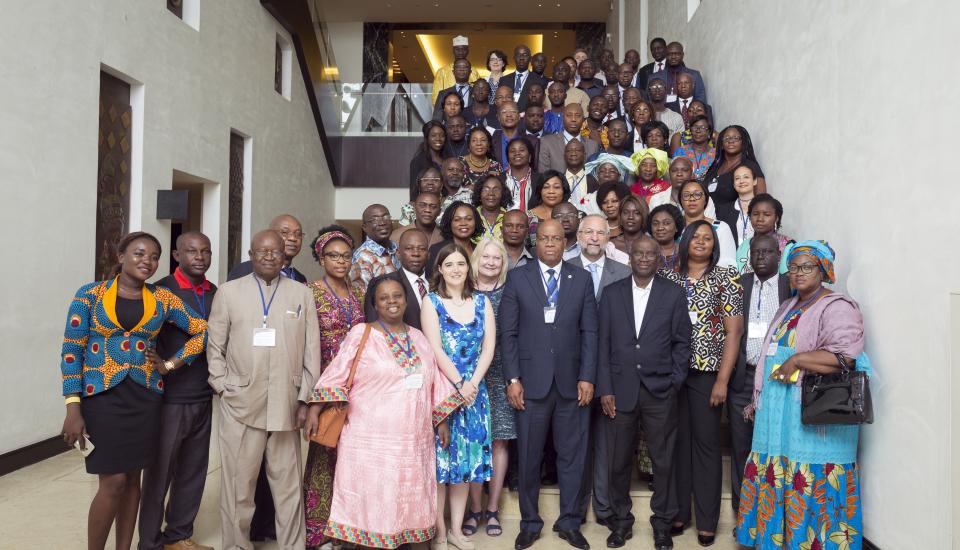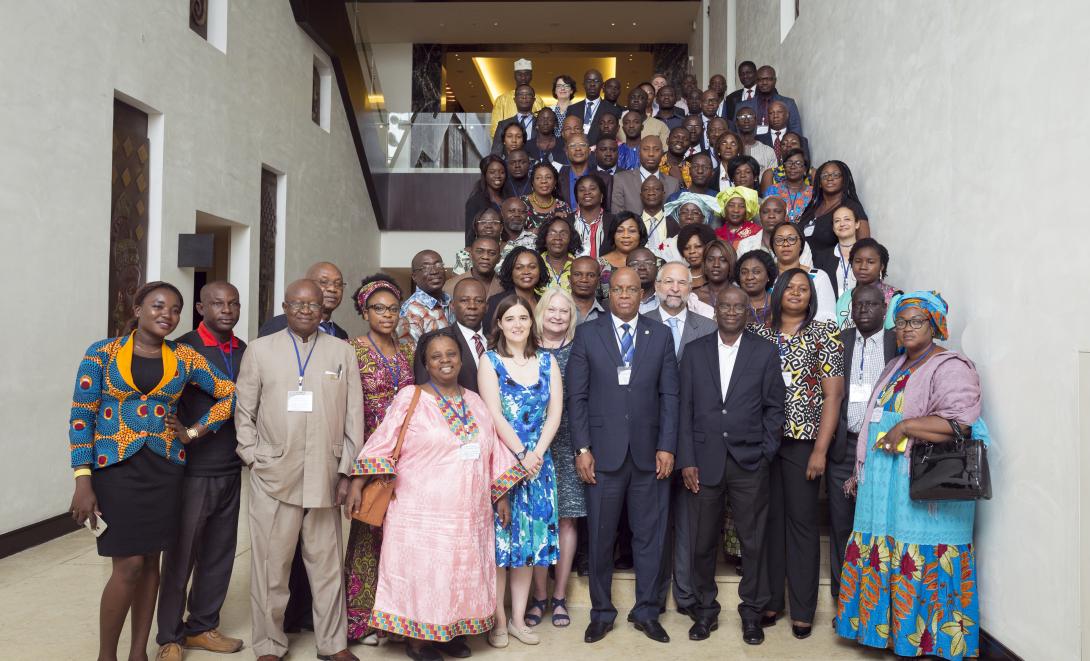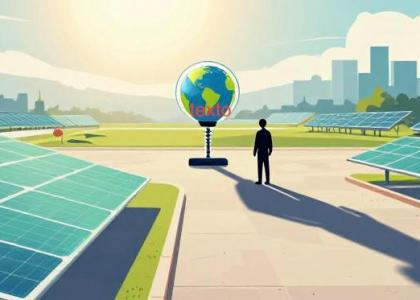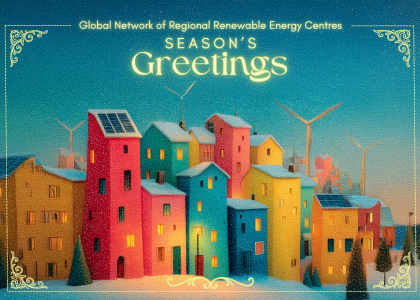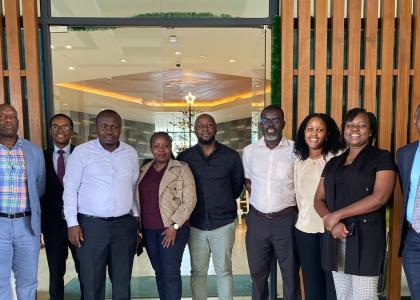Energy experts of the Economic Community of West African States (ECOWAS) validated and adopted the ECOWAS Directive on Gender Assessments in Energy Projects, during a 3-day workshop held from 26 – 28 June 2017 in Accra, Ghana. The workshop was organized by the ECOWAS Centre for Renewable Energy and Energy Efficiency (ECREEE) in collaboration with the ECOWAS Department of Gender and Social Affairs, the ECOWAS Department of Energy, the ECOWAS Legal Department, the West African Power Pool (WAPP), the ECOWAS Regional Electricity Regulatory Authority (ERERA), the West African Gas Pipeline Authority (WAGPA) and the ECOWAS Infrastructure Projects Preparation and Development Unit (PPDU), in partnership with USAID/Power Africa and the Clean Energy Solutions Centre.
A groundbreaking achievement for the advancement of women’s human rights in energy development, the Directive aims to ensure that vulnerable and marginalized persons are not excluded as participants in and beneficiaries of energy infrastructure development by: ensuring that the specific interests of women and men, as stakeholders, are taken into account in the development of projects; ensuring that any potential adverse and discriminatory impacts on women or men deriving from projects are recognized and avoided or mitigated to the extent feasible; improving transparency in planning and implementation processes to promote and increase the participation and capacity of women and men, including but not limited to customers, employees, managers, investors, officials and other stakeholders; and encouraging the development of harmonized policy, legal regulatory frameworks and operational strategies in each Member State and for ECOWAS institutions that are consistent with the principles of, and achieve the objectives of, the Directive, whilst imposing the least financial and administrative barriers possible on Developers, Competent Authorities and other stakeholders.
At the opening ceremony, the Minister for Energy of Ghana, Honourable Boakye Agyarko, who was represented by Mr John Nuworklo, the Ministry’s Director of Generation and Transmission, noted that energy infrastructure projects do not necessarily impact men and women in the same way, as issues of displacement and resettlement; job opportunities; gender-based violence; and exposure to hazardous work conditions have different implications on the lives of men and women in any given community. He noted that for years, the focus has been on hard infrastructure development first, with the expectation that social and economic development follows automatically, without much consideration of the process. According to him “What we have seen, as a result of this, are infrastructure projects that have resulted in environmental degradation, loss of livelihood for already poor populations and a widened social and gender inequality gap, with women suffering the most”. He concluded his speech, noting that “the regional directive provides ECOWAS Member States with a framework to lift its poor out of poverty by ensuring that the vulnerable people in project affected communities are adequately protected and cared for, that compensations are equitably distributed, that jobs are created for men and women and that human rights are generally respected”.
Representing the ECOWAS Commission, Honourable Morlaye Bangoura, Commissioner for Energy and Mines, noted that the Directive will ensure that, before construction or installation of energy projects, developers assess the impacts of the project from a gender-lens. Adding that the implementation the Directive will result in a shift whereby energy project developers assess projects against the number of women and men who might be impacted through : 1) land displacement; 2) loss or alteration of source livelihood; 3) employment by the project; or 4) who stand to gain access to energy products and services, among others factors. He also noted that the Directive will make certain that cross-border energy projects, sponsored and/or implemented by ECOWAS institutions, adhere to these same principles.
According to the Executive Director of ECREEE, Mahama Kappiah, translation and implementation of the regional Directive at the national level will guarantee that gender in energy sector projects will be taken more seriously than ever before. He further noted that the legal instrument will make sure that the Community moves from vague promises of mainstreaming gender to carrying out concrete actions which are visible, measurable and trackable.
Applauding the ECOWAS initiative, the USAID/Power Africa West Africa Regional Directive, Alex Deprez, remarked that “ECREEE’s work in spearheading gender integration in the energy sector will help achieve the transformation goals of Africa’s energy sector”.
In addition to this, Rachel Kyte, CEO and Special Representative of the UN Secretary General at Sustainable Energy for All noted that “Providing affordable, reliable and clean energy services to the world’s most marginalized populations requires changes in mindset, business models and decision-making. This example of West African leadership empowers women in energy-related decisions. By focusing on those that have been excluded from energy systems of the past and putting them first, we can be true to our commitment, under the Sustainable Development Goals, to leave no one behind.”
The workshop brought together over 100 people (54 women and 60 men) from the ministries of energy and regulatory agencies in the ECOWAS region, civil society organizations (CSOs), academia and research institutions, development partners, media and representatives of other relevant stakeholder institutions. In addition to the technical sessions on reviewing the Background Study on “Developing a Legal Instrument for Gender Assessment in Energy Infrastructure Planning and Development within ECOWAS” and the draft Directive, the workshop featured training sessions on gender and energy linkages and gender impact assessments in the energy sector. The workshop produced recommendations, including an Action Plan, to facilitate the Directive’s adoption by the statutory bodies of ECOWAS and its implementation at the national level.
The ECOWAS Directive on Gender Assessments in Energy Projects sets the legal framework for the ECOWAS Policy for Gender Mainstreaming in Energy Access, which was adopted by the ECOWAS Heads of State in Monrovia, the Republic of Liberia, on 4 June 2017.
Download:
ECOWAS DIRECTIVE ON GENDER ASSESSMENTS IN ENERGY PROJECTS
IMPLEMENTATION LEVELS AND SPECIFIC ACTION PLAN
MODEL ACT/REGULATION ON GENDER ASSESSMENTS IN ENERGY PROJECTS
Press contact person
Ms. Monica Maduekwe
Coordinator – ECOWAS Programme on Gender Mainstreaming in Energy Access (ECOW-GEN)
Email: mmaduekwe@ecreee.org
Phone: +238 9809689

